Recently, we published the first article in the series “Function Allocation of Tesla Model 3 Based on Controller Pin Definitions” titled “RBCM” (click to jump to the article). It sparked some discussions and controversies. After obtaining new reference materials and confirming the errors in the article, we quickly made corrections (click to jump to the corrections). Today, this article is the second in the series, titled “LBCM”.
Considering the framework of the first article “RBCM”, we will still categorize this one by system, while also adding a comparison between LBCM and RBCM (since the description of the RBCM part will also be updated), I believe many pieces of information will become clearer.
1. Passive Safety System


Occupancy and Buckle, except for the driver side (note that I said driver side, just swap left and right), need to handle power on/off logic, while other functions similar to seat belt alarms or “automatic audio optimization” (refer to Tesla’s patent “Automatic Audio Optimization System”, which could be a smokescreen) merely provide signal acquisition; thus, there is not much entanglement in function allocation. I personally believe it is a comprehensive consideration of signal types (occupancy/Buckle), resource allocation (Analog Input 5:4), and wiring harness routing (left/right).
2. Windows
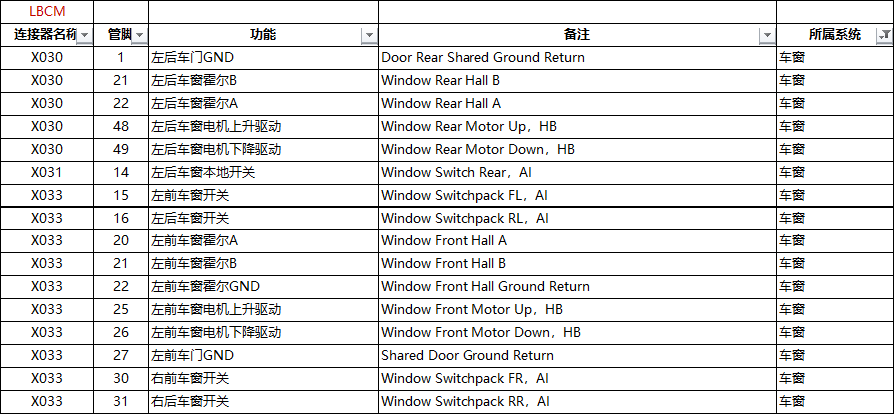
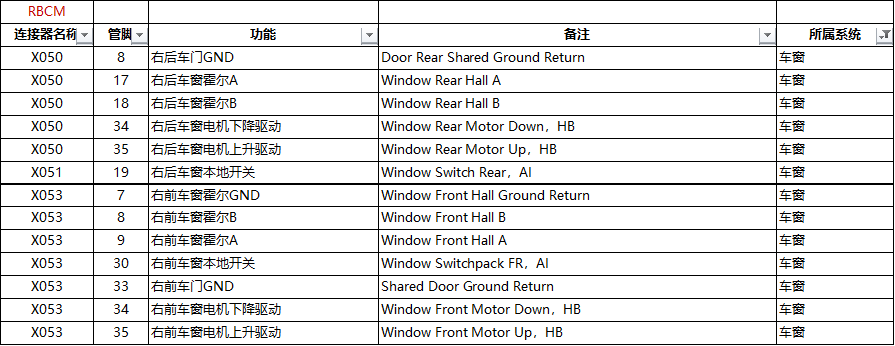
Evenly divided left and right, with an additional switch on the driver side, nothing more to say.
Additionally, it confirms the previous information about the 5-PIN dual Hall anti-pinch motor scheme.

3. Onboard Network
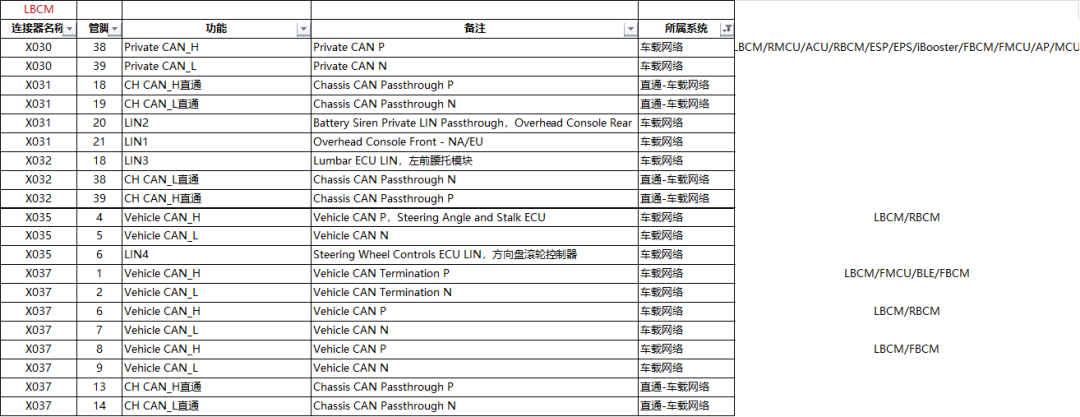
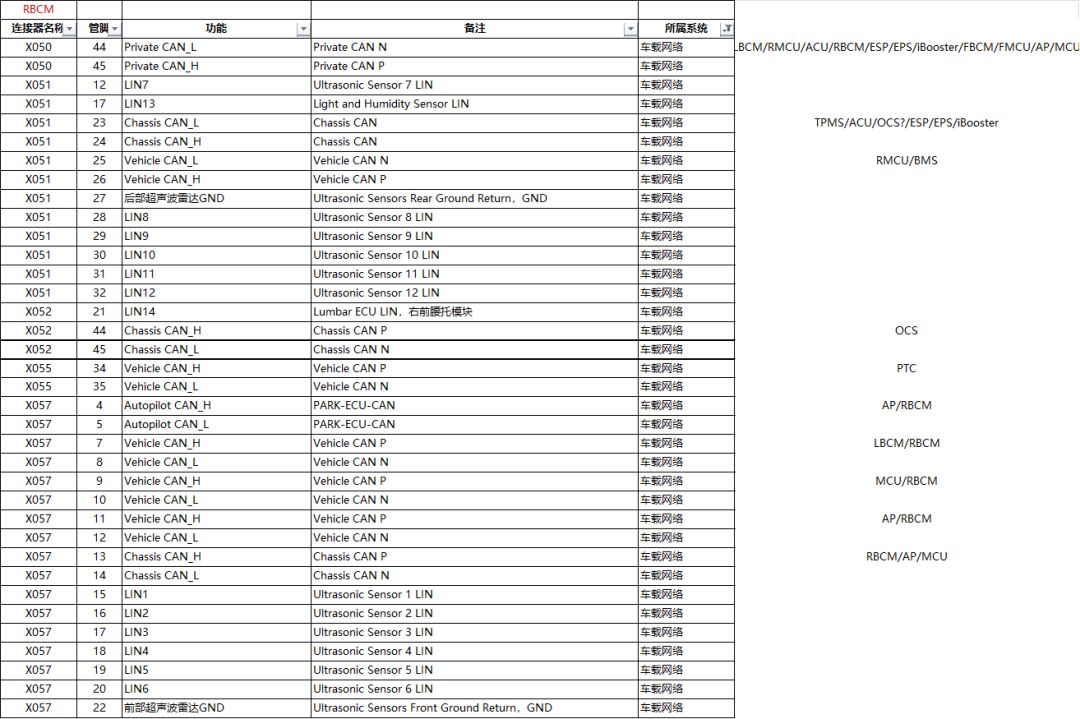
The bus resource comparison shows LBCM with 5-channel CAN/4-channel LIN, and RBCM with 10-channel CAN/14-channel LIN, among which 3-channel CAN is shared by both LBCM and RBCM; LBCM focuses more on traditional body domains (lighting, seating, entry lights), while RBCM is more closely connected with high voltage and advanced driving systems (ultrasonic radar signal routing).
At the same time, we have updated the “Network Topology of Tesla Model 3” released last year (click to jump to the evolution of Tesla’s electronic and electrical architecture) as detailed in the figure below.
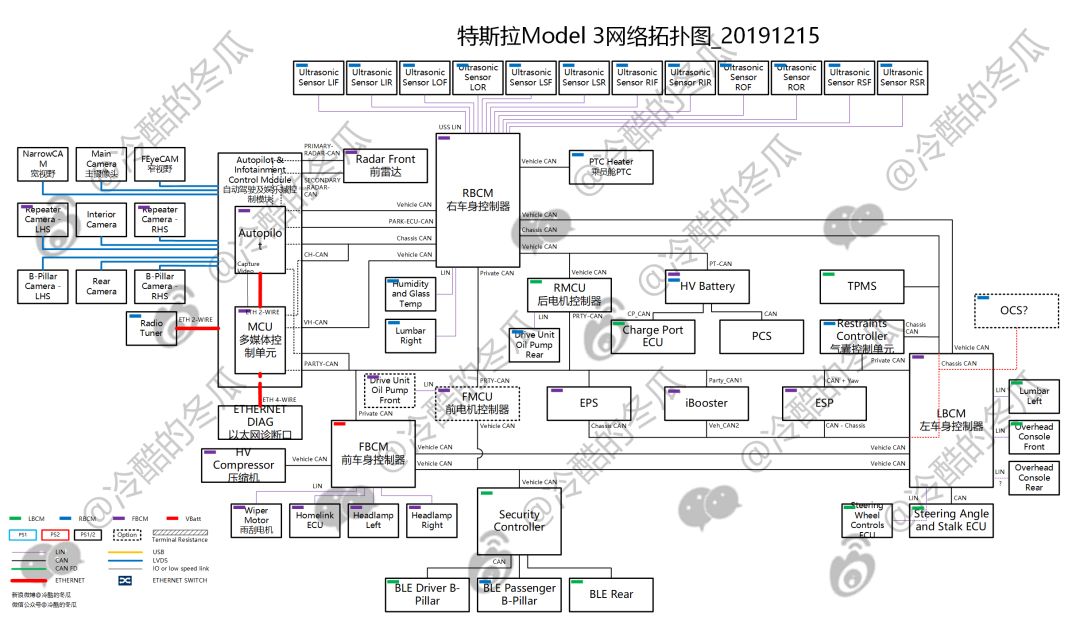
4. Power Distribution
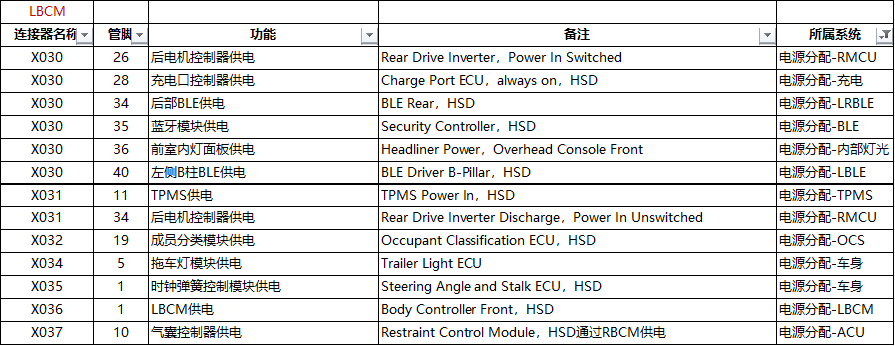
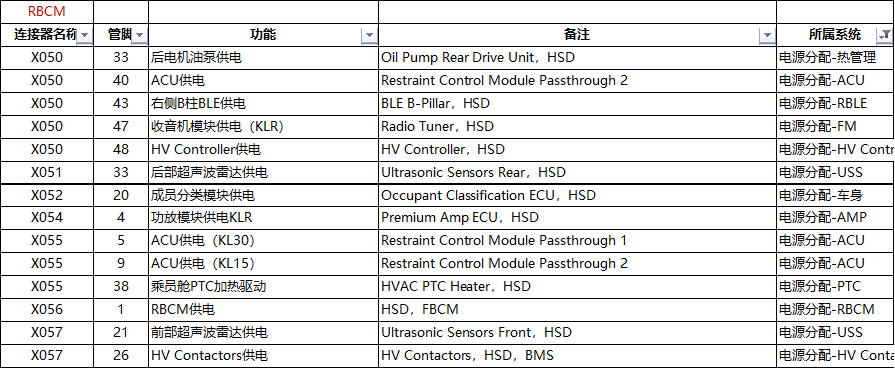
In terms of power distribution, apart from the obvious left-right division based on layout, no further patterns have been discovered so far.
5. Steering Column Adjustment

The basic functions realized by the steering column adjustment are electric adjustment and position memory, with no further divisions.
6. Accessories

… None.
7. Air Conditioning

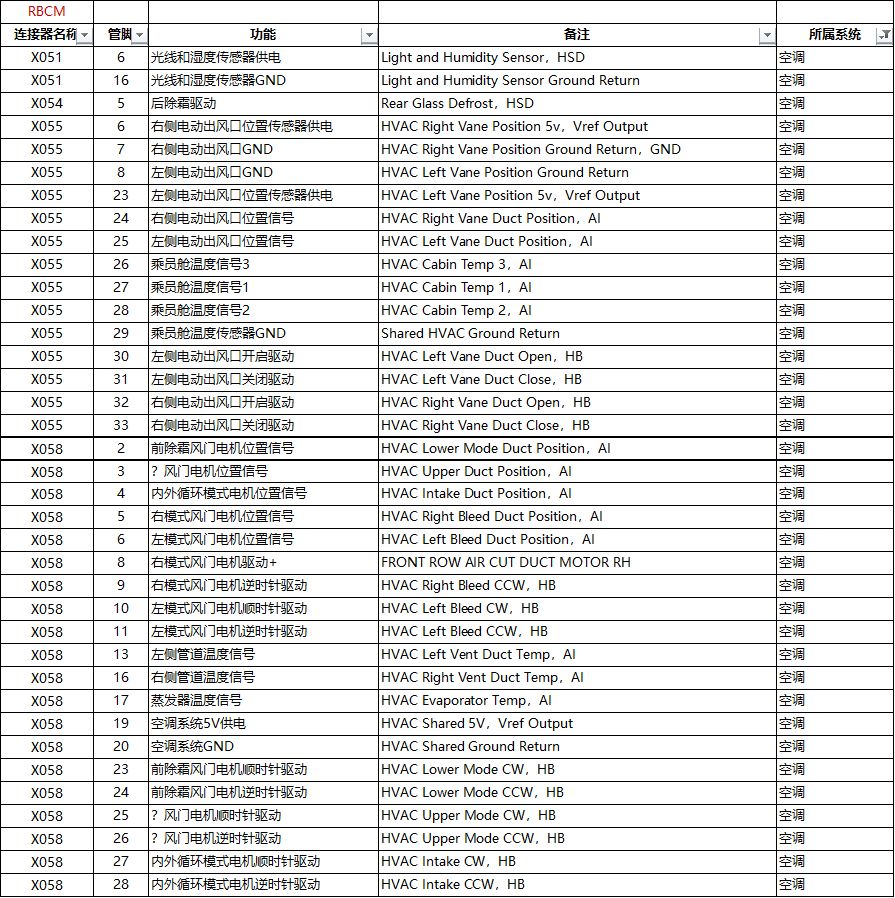
The comparison of pins clearly shows that the sensor signal acquisition and load drive for the air conditioning system are almost all in the RBCM, while the blower motor drive is allocated in the LBCM. Could this be due to wiring harness routing?
8. Door Locks
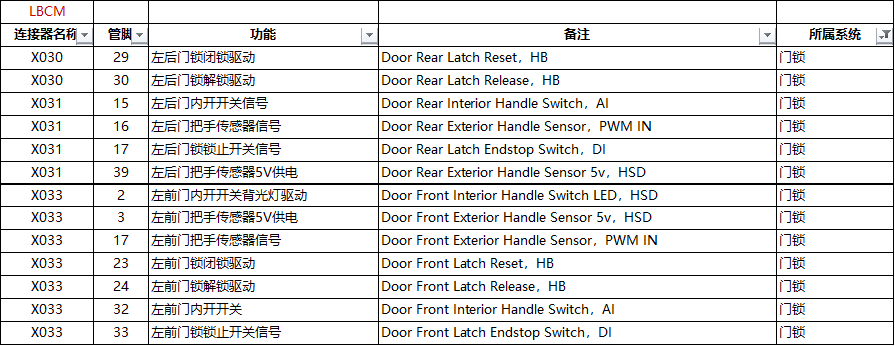
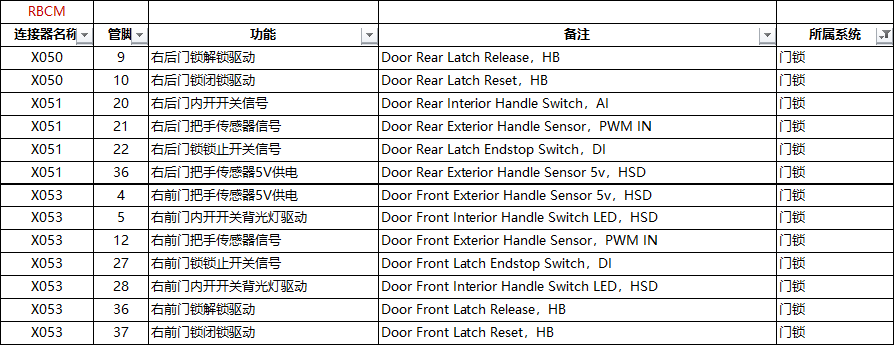
The left front/right front door handles and left/rear door handles are perfectly symmetrically divided.
9. Interior Lighting
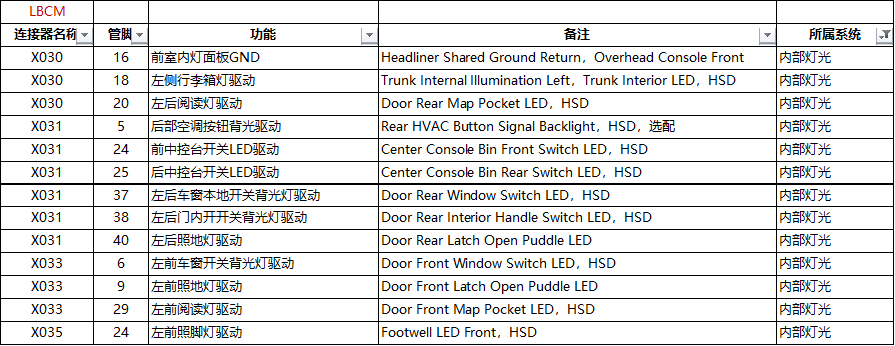

Compared to RBCM, LBCM has additional backlighting for the driver side window switch and the armrest box, while the remaining interior lighting is symmetrically allocated.
10. Exterior Lighting


RBCM has additional high-mounted brake lights, position lights, and left/right reversing light drives compared to LBCM, without any particularly obvious judgment criteria.
11. Exterior Rearview Mirrors


Nothing much to say, symmetrically allocated.
12. Parking


Perfectly symmetrical.
13. Seats
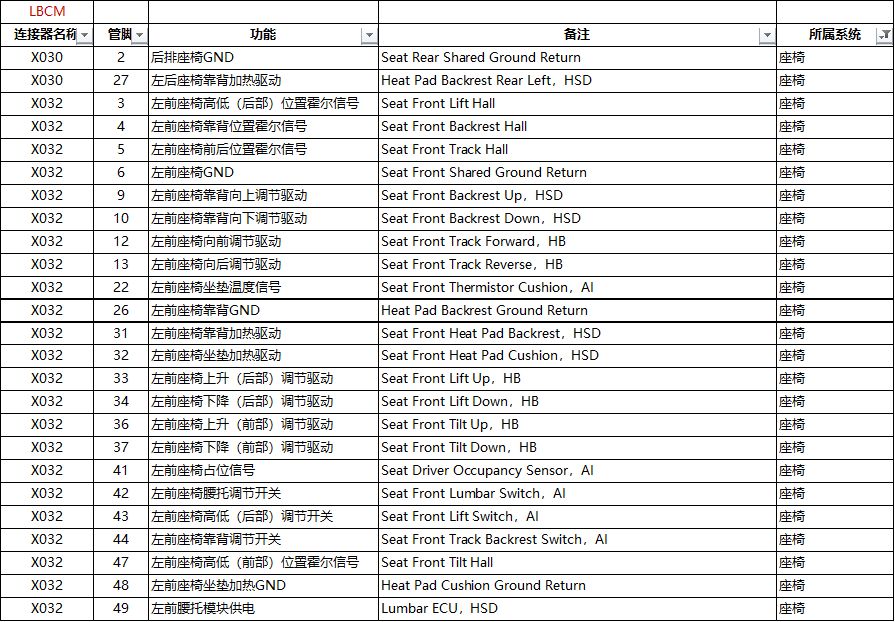
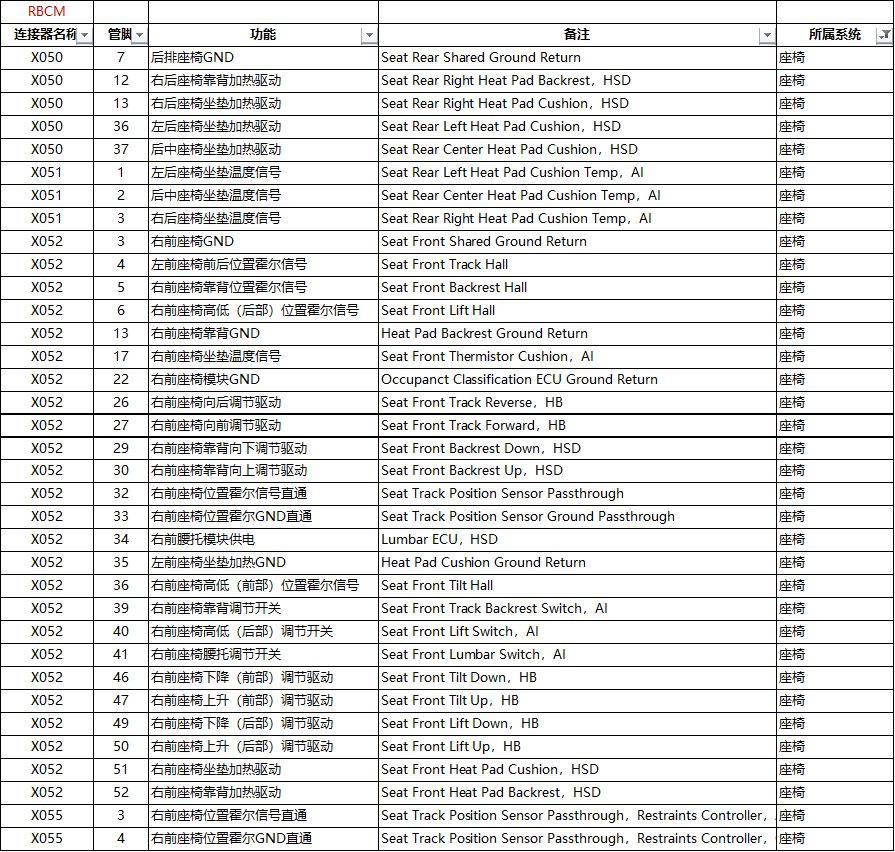
RBCM has additional interfaces related to rear seat heating functions compared to LBCM.
…
If we could have a structural data projection top view, and label everything one by one, it would be clearer than ever. We have organized one here for you to get a rough idea (we tried our best, hehehe).
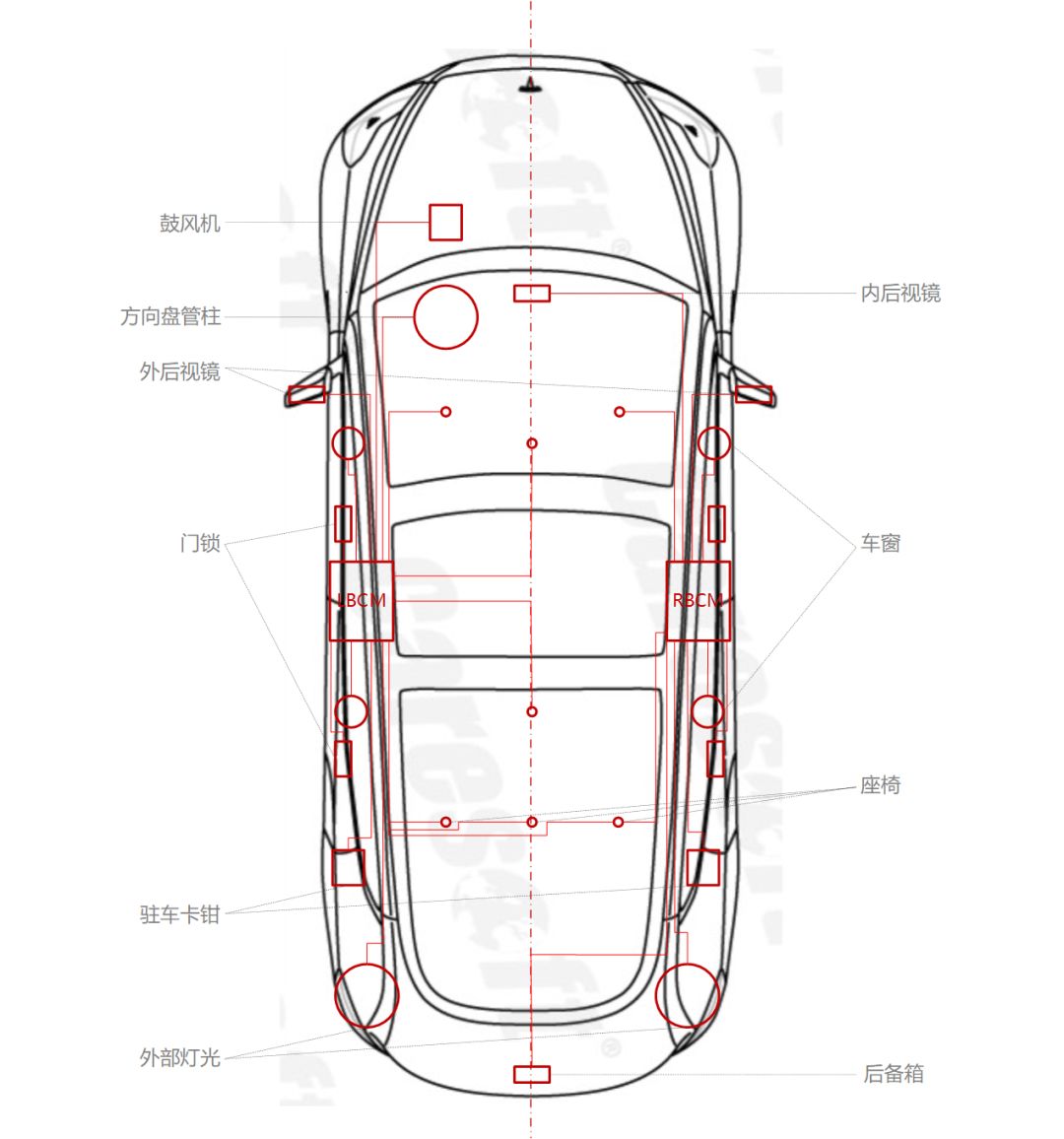
(Details—such as power distribution or network connections—are not reflected in the schematic diagram. Additionally, the next article in the series, “FBCM”, aims to clarify the overall vehicle power distribution, so stay tuned.)
Alright, those interested in the complete pin definitions of the LBCM for Tesla Model 3 can reply “LBCM” in the backend to obtain it. Also, feel free to join my knowledge circle: Cold Winter Melon
Who is Cold Winter Melon?
An amateur automotive electronics engineer, a funny dad; an egomaniac, a low-quality content creator.
Welcome to find me on Weibo/Zhihu/WeChat/Toutiao, let’s accelerate the transformation of automobiles towards electrification/networking/intelligence/sharing together!